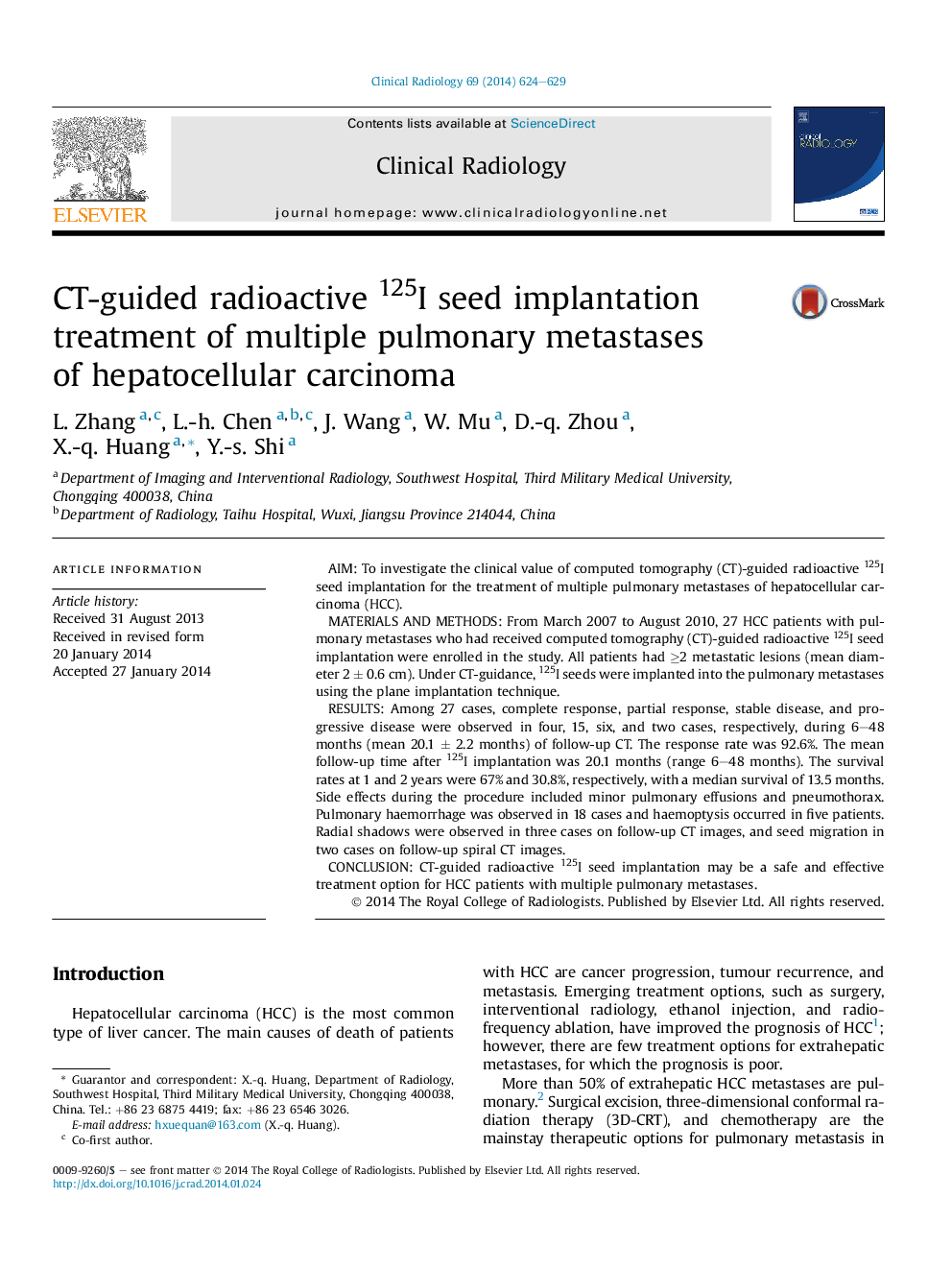| Article ID | Journal | Published Year | Pages | File Type |
|---|---|---|---|---|
| 3981745 | Clinical Radiology | 2014 | 6 Pages |
•HCC patients with pulmonary metastases received CT-guided radioactive 125I seed implantation.•CT-guided radioactive 125I seed implantation may be a safe and effective treatment option.•Prospective studies are needed to confirm its value.
AimTo investigate the clinical value of computed tomography (CT)-guided radioactive 125I seed implantation for the treatment of multiple pulmonary metastases of hepatocellular carcinoma (HCC).Materials and methodsFrom March 2007 to August 2010, 27 HCC patients with pulmonary metastases who had received computed tomography (CT)-guided radioactive 125I seed implantation were enrolled in the study. All patients had ≥2 metastatic lesions (mean diameter 2 ± 0.6 cm). Under CT-guidance, 125I seeds were implanted into the pulmonary metastases using the plane implantation technique.ResultsAmong 27 cases, complete response, partial response, stable disease, and progressive disease were observed in four, 15, six, and two cases, respectively, during 6–48 months (mean 20.1 ± 2.2 months) of follow-up CT. The response rate was 92.6%. The mean follow-up time after 125I implantation was 20.1 months (range 6–48 months). The survival rates at 1 and 2 years were 67% and 30.8%, respectively, with a median survival of 13.5 months. Side effects during the procedure included minor pulmonary effusions and pneumothorax. Pulmonary haemorrhage was observed in 18 cases and haemoptysis occurred in five patients. Radial shadows were observed in three cases on follow-up CT images, and seed migration in two cases on follow-up spiral CT images.ConclusionCT-guided radioactive 125I seed implantation may be a safe and effective treatment option for HCC patients with multiple pulmonary metastases.
